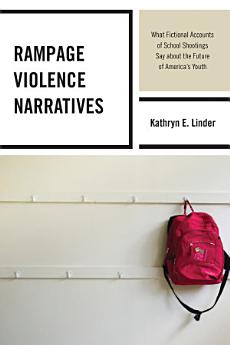Rampage Violence Narratives: What Fictional Accounts of School Shootings Say about the Future of America’s Youth
abr 2014 · Bloomsbury Publishing USA
eBook
168
Páginas
reportLas valoraciones y las reseñas no se verifican. Más información
Información sobre este eBook
Springfield. Columbine. Sandy Hook. Each school shooting in the United States is followed by a series of questions. Why does this happen? Who are the shooters? How can this be prevented? Along with parents, school officials, media outlets, and scholars, popular culture has also attempted to respond to these questions through a variety of fictional portrayals of rampage violence. Rampage Violence Narratives: What Fictional Accounts of Rampage Violence Say about the Future of America’s Youth offers a detailed look at the state of youth identity in American cultural representations of youth violence through an extended analysis of over forty primary sources of fictional narratives of urban and suburban/rural school violence. Representations of suburban and rural school shootings that are modeled after real-life events serve to shape popular understandings of the relationship between education and American identity, the liminal space between childhood and adulthood, and the centrality of white heterosexual masculinity to definitions of social and political success in the United States. Through a series of "case studies" that offer in-depth examinations of fictional depictions of school shootings in film and literature, it becomes clear that these stories are representative of a larger social narrative regarding the future of the United States. The continuing struggle to understand youth violence is part of an ongoing conversation about what it means to raise future citizens within a cultural moment that views youth through a lens of anxiety rather than optimism.
Acerca del autor
Kathryn E. Linder is research director for Oregon State University Ecampus.
Valorar este eBook
Danos tu opinión.
Información sobre cómo leer
Smartphones y tablets
Instala la aplicación Google Play Libros para Android y iPad/iPhone. Se sincroniza automáticamente con tu cuenta y te permite leer contenido online o sin conexión estés donde estés.
Ordenadores portátiles y de escritorio
Puedes usar el navegador web del ordenador para escuchar audiolibros que hayas comprado en Google Play.
eReaders y otros dispositivos
Para leer en dispositivos de tinta electrónica, como los lectores de libros electrónicos de Kobo, es necesario descargar un archivo y transferirlo al dispositivo. Sigue las instrucciones detalladas del Centro de Ayuda para transferir archivos a lectores de libros electrónicos compatibles.








